Excellent narative Keep it up.Also,can you check out my Netherlands AAR.I started that AAR beign inspired by your British one and I would love it if you could take a look one it
Keep it up.Also,can you check out my Netherlands AAR.I started that AAR beign inspired by your British one and I would love it if you could take a look one it
Building a Nation - an Interactive British AAR
- Thread starter unmerged(260001)
- Start date
-
We have updated our Community Code of Conduct. Please read through the new rules for the forum that are an integral part of Paradox Interactive’s User Agreement.
You are using an out of date browser. It may not display this or other websites correctly.
You should upgrade or use an alternative browser.
You should upgrade or use an alternative browser.
- Status
- Not open for further replies.
I'd be a little sceptical about jumping on the "Help Germany dominate France" wagon. It'll only serve to Britain's detriment when the newly empowered Germans start to challenge Britain's power.
Seek to maintain a balance, I say. Let neither take the lead and let neither fall behind.
Seek to maintain a balance, I say. Let neither take the lead and let neither fall behind.
Yes, balance of power. France and Germany need to be roughly equal in strength, neither able to dominate the other. That way the risks of a united European subcontinent would be minimized.
So we are to be a nation of cloak and dagger policy?
And what should we do should one break the chain?
Declare war on them?
Then declare war on the other when it takes the mould?
We need to take a side.
The German side.
And what should we do should one break the chain?
Declare war on them?
Then declare war on the other when it takes the mould?
We need to take a side.
The German side.
And what should we do should one break the chain?
Conquer the world, of course.
If taking a side means that one of the mongrels is going to bite the hand that feeds it, then I don't see why.So we are to be a nation of cloak and dagger policy?
And what should we do should one break the chain?
Declare war on them?
Then declare war on the other when it takes the mould?
We need to take a side.
The German side.
If taking a side means that one of the mongrels is going to bite the hand that feeds it, then I don't see why.
Twaddle, mere twaddle, I have yet to be seen any eveidence that the Germans should treat us as such, have we forgotten the history with the French?
A unified German Empire is as much a threat as the French. No one can dominate Europe, because if either Paris or Berlin achieve domination they will turn their guns against us.
Always join the weaker side in any war between them to maintain the status quo.
Then we should be joining the CSA...
Then we should be joining the CSA...
We are a Republic. We should not be supporting a nation that still maintains slaves.
We are a Republic. We should not be supporting a nation that still maintains slaves.
The Union and the CSA are both republics...I don't quite see how the government type fits into this discussion...
That said, this NCP member is pro-union...possibly because he has invested heavily in yankee business ventures in the more industrialized north during the recent Labour administration.
The Election of 1875
After 6 years under Gladstone's minority Liberal government Britain moved into the election of 1875. The campaign was most noteworthy for being highly charged and at times violent. In deprived urban areas the NCP maintained the grassroots links of the BNU to anti-socialist gangs and these groups. During the election campaign these pro NCP gangs often clashed with Socialist Party and sometimes even Labour supporters as well as immigrant populations. Off the streets both Disraeli and Gladstone tried to run almost Presidential campaigns – Gladstone hoping to emulate his success from a similar campaign in 1869 and Disraeli (now 71) attempting to restore himself to the Premiership after 19 years out of office.
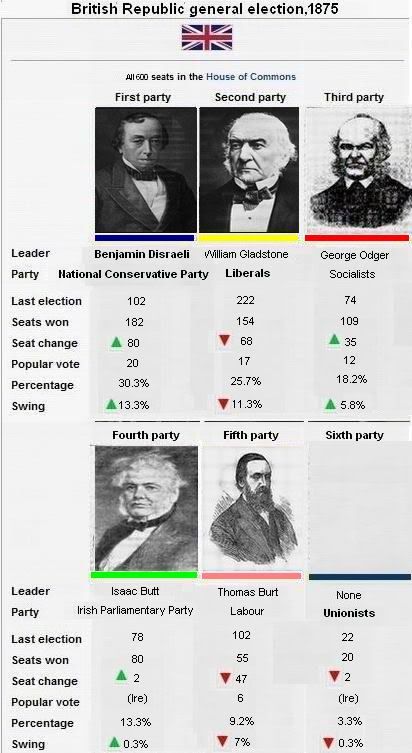
The result of the election was an almighy triumph for the National Conservative Party. Once again united after years of division the British right had re-asserted itself as a dominating force – gaining some 80 seats in the commons and becoming the single largest party.
The brunt of the NCP's gains came at the expense of Gladstone's Liberals who were deemed weak on foreign policy. Whilst the Liberals made up for some losses to the Tories with gains of Labour they still lost 68 seats, slumping from a historical high of 222 seats to 154. Admittedly, their Parliamentary presence had been somewhat inflated by the weakness of the right wing parties in the last election and Labour's continued flatness. So remaining the 3rd largest party was a small victory in some ways.
On the left the story was of the continued erosion of Labour support – around 3/5s of their lost seats went to the Socialist Party, yet many simply refused to send their votes the way of the Socialists in the face of Labour's decline and instead looked right – to the Liberals. Overall the Left was continuing to shed votes as the combined votes of both Labour and the Socialists dropped under 30%.
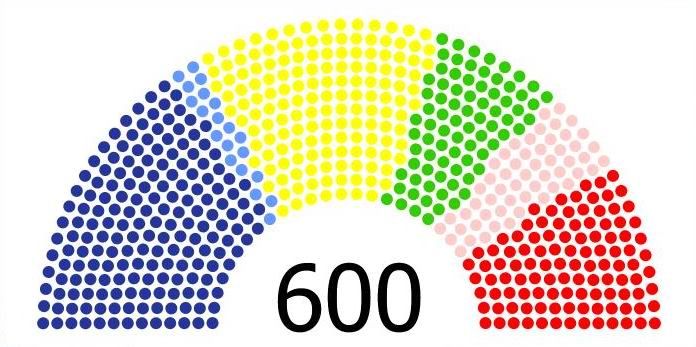
Yet, inspite of the great strides taken by Disraeli and he NCP the right wing forces in Parliament remained a long way from a majority. Even combined with the ever pro-Tory Irish Unionists the NCP could barely muster 200 seats in Parliament. On the Left Gladstone had burnt all bridges with the Socialists after his refusal to even recognise them by inviting them into the wartime National Government. This left not obvious option for a government of ideological allies.
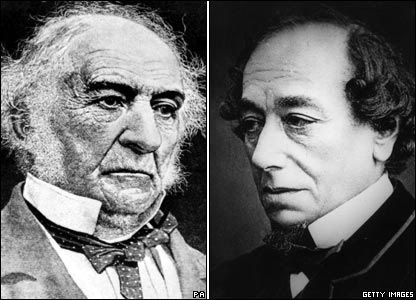
This left no other option. In the interests of national unity and the formation of some sort of government Disraeli was forced to go to the unseated Prime Minister and request a coalition with the man he had described as an ''unprincipled maniac'' during the campaign.
Putting personal feuds aside the two parties began a series of meeting to thrash out the terms to a coalition:
The Liberals secured a guaruntee of free trade policies and no tariffs
They also secured their regressive tax system that would provide tax cuts for the wealthiest in order to encourage enterprise
However, the the NCP gained their policy of limited industrial interventionism
They NCP also agreed not to interfere with Imperial migration
The NCP were forced to give up their policy of banning the Socialist Party, and indeed of banning other communist groups like Anarchists
However, the Liberals did agree to an act that would ban the publication of works ''promoting the overthrow of the democratic principles of the the Republic of Britain''
In foreign affairs it was decided that an ad-hoc approach should be adopted with the two parties agreeing as they go forward
But in specifics the Liberals agreed to send a delegation to Germany to promote friendship and the NCP agreed to a policy of neutrality and non-intervention in the American Civil War
All other issues would be resolved as the coalition moved forward. It was uneasy and unsecure but it was a government.
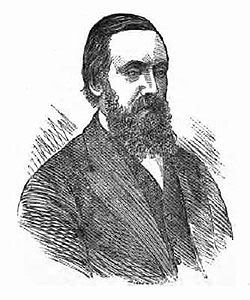
Almost immediately after the election the Labour Party opted to eject Thomas Burt from the leadership. The one time Prime Minister's reign as leader of the Party had been an unmitigated disaster for Labour. Since Harney's resignation Burt had led a Labour government to war, saw the Marxists defect, seen the party's vote now slide to ¼ of its level under Harney and now a right wing government had come to power. The Labour party had lost much of the working class' confidence and many Trade Unions had turned over to the Socialists. If something drastic wasn't done Labour may well have ceased to be.
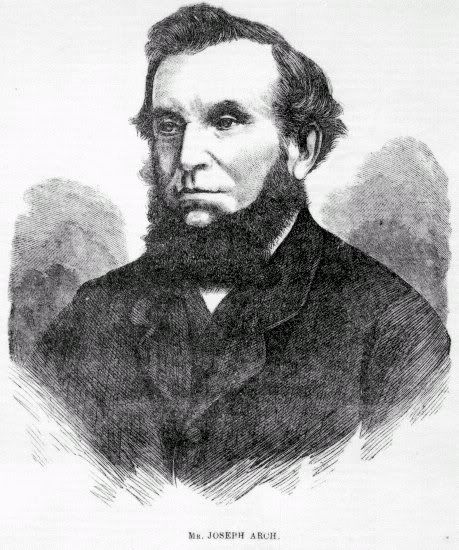
Labour needed to get back to its roots – on the ground with the workers themselves. It was for this reason that Joseph Arch – a Methodist preacher who had only just been elected to Parliament was made leader of the Labour Party. Joseph Arch had come to fame in 1873 when he led a movement Karl Marx dubbed ''the Great Awakening of the agricultural workers''. Essentially Arch had led a mass movement of agricultural labourers in a semi-rebellion against exploitative land owners and against the bloody war in France – forming a Union for agricultural labourers. They went on to win a strong victory as land owners were forced to improve working conditions, abide by the 8 hour day (which had been widely ignored) and raise wages. The result of this had been to make Arch a folk hero. Indeed there were even songs sung about him amongst the agricultural labourers: "Joe Arch he raised his voice, 'twas for the working men, Then let us all rejoice and say, We'll all be union men".
With a new and popular leader the Labour party would hope that they could once again reinvent themselves – this time as a political force of Christian Socialism that could enjoy a mass base of support, as they had in the past.
After 6 years under Gladstone's minority Liberal government Britain moved into the election of 1875. The campaign was most noteworthy for being highly charged and at times violent. In deprived urban areas the NCP maintained the grassroots links of the BNU to anti-socialist gangs and these groups. During the election campaign these pro NCP gangs often clashed with Socialist Party and sometimes even Labour supporters as well as immigrant populations. Off the streets both Disraeli and Gladstone tried to run almost Presidential campaigns – Gladstone hoping to emulate his success from a similar campaign in 1869 and Disraeli (now 71) attempting to restore himself to the Premiership after 19 years out of office.

The result of the election was an almighy triumph for the National Conservative Party. Once again united after years of division the British right had re-asserted itself as a dominating force – gaining some 80 seats in the commons and becoming the single largest party.
The brunt of the NCP's gains came at the expense of Gladstone's Liberals who were deemed weak on foreign policy. Whilst the Liberals made up for some losses to the Tories with gains of Labour they still lost 68 seats, slumping from a historical high of 222 seats to 154. Admittedly, their Parliamentary presence had been somewhat inflated by the weakness of the right wing parties in the last election and Labour's continued flatness. So remaining the 3rd largest party was a small victory in some ways.
On the left the story was of the continued erosion of Labour support – around 3/5s of their lost seats went to the Socialist Party, yet many simply refused to send their votes the way of the Socialists in the face of Labour's decline and instead looked right – to the Liberals. Overall the Left was continuing to shed votes as the combined votes of both Labour and the Socialists dropped under 30%.

Yet, inspite of the great strides taken by Disraeli and he NCP the right wing forces in Parliament remained a long way from a majority. Even combined with the ever pro-Tory Irish Unionists the NCP could barely muster 200 seats in Parliament. On the Left Gladstone had burnt all bridges with the Socialists after his refusal to even recognise them by inviting them into the wartime National Government. This left not obvious option for a government of ideological allies.

This left no other option. In the interests of national unity and the formation of some sort of government Disraeli was forced to go to the unseated Prime Minister and request a coalition with the man he had described as an ''unprincipled maniac'' during the campaign.
Putting personal feuds aside the two parties began a series of meeting to thrash out the terms to a coalition:
The Liberals secured a guaruntee of free trade policies and no tariffs
They also secured their regressive tax system that would provide tax cuts for the wealthiest in order to encourage enterprise
However, the the NCP gained their policy of limited industrial interventionism
They NCP also agreed not to interfere with Imperial migration
The NCP were forced to give up their policy of banning the Socialist Party, and indeed of banning other communist groups like Anarchists
However, the Liberals did agree to an act that would ban the publication of works ''promoting the overthrow of the democratic principles of the the Republic of Britain''
In foreign affairs it was decided that an ad-hoc approach should be adopted with the two parties agreeing as they go forward
But in specifics the Liberals agreed to send a delegation to Germany to promote friendship and the NCP agreed to a policy of neutrality and non-intervention in the American Civil War
All other issues would be resolved as the coalition moved forward. It was uneasy and unsecure but it was a government.

Almost immediately after the election the Labour Party opted to eject Thomas Burt from the leadership. The one time Prime Minister's reign as leader of the Party had been an unmitigated disaster for Labour. Since Harney's resignation Burt had led a Labour government to war, saw the Marxists defect, seen the party's vote now slide to ¼ of its level under Harney and now a right wing government had come to power. The Labour party had lost much of the working class' confidence and many Trade Unions had turned over to the Socialists. If something drastic wasn't done Labour may well have ceased to be.

Labour needed to get back to its roots – on the ground with the workers themselves. It was for this reason that Joseph Arch – a Methodist preacher who had only just been elected to Parliament was made leader of the Labour Party. Joseph Arch had come to fame in 1873 when he led a movement Karl Marx dubbed ''the Great Awakening of the agricultural workers''. Essentially Arch had led a mass movement of agricultural labourers in a semi-rebellion against exploitative land owners and against the bloody war in France – forming a Union for agricultural labourers. They went on to win a strong victory as land owners were forced to improve working conditions, abide by the 8 hour day (which had been widely ignored) and raise wages. The result of this had been to make Arch a folk hero. Indeed there were even songs sung about him amongst the agricultural labourers: "Joe Arch he raised his voice, 'twas for the working men, Then let us all rejoice and say, We'll all be union men".
With a new and popular leader the Labour party would hope that they could once again reinvent themselves – this time as a political force of Christian Socialism that could enjoy a mass base of support, as they had in the past.
A preacher? Methinks Labor is taking too far that idea that Our Lord was the first Communist 
Attack77 said:The Liberals secured a guaruntee of free trade policies and no tariffs
They also secured their regressive tax system that would provide tax cuts for the wealthiest in order to encourage enterprise
However, the the NCP gained their policy of limited industrial interventionism
They NCP also agreed not to interfere with Imperial migration
The NCP were forced to give up their policy of banning the Socialist Party, and indeed of banning other communist groups like Anarchists
However, the Liberals did agree to an act that would ban the publication of works ''promoting the overthrow of the democratic principles of the the Republic of Britain''
In foreign affairs it was decided that an ad-hoc approach should be adopted with the two parties agreeing as they go forward
But in specifics the Liberals agreed to send a delegation to Germany to promote friendship and the NCP agreed to a policy of neutrality and non-intervention in the American Civil War
Sensible compromise. Let's see how this new ship of state navigates the waters...
Nice healthy foreign policy I can more or less agree with in all points.
Its actually not a bad set of policies after all.
And its good to see Labour crash and burn.
Its actually not a bad set of policies after all.
And its good to see Labour crash and burn.
- Status
- Not open for further replies.

